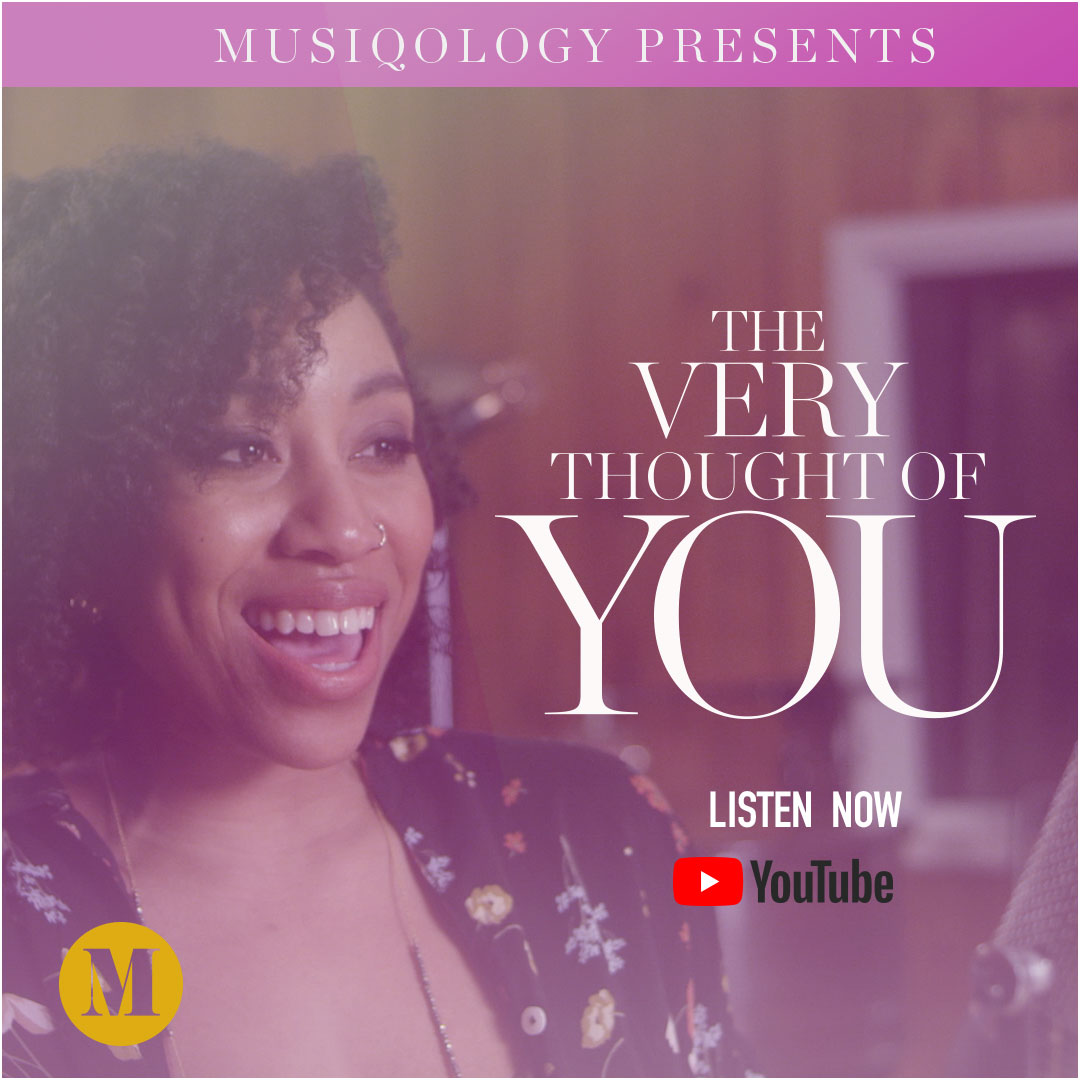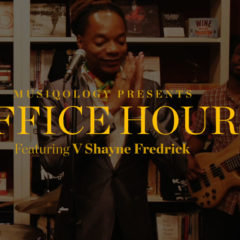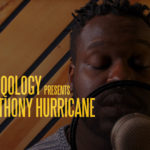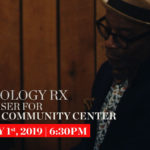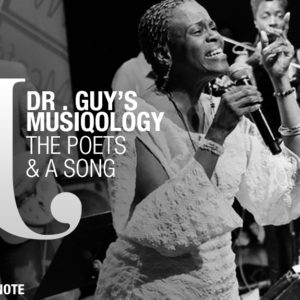Set to take the stage at the legendary Blue Note in New York on Monday, May 16 for The Poets & A Song (tickets available HERE), Dr. Guy’s MusiQology band is a collection of skilled and thoughtful players. Each brings something different to the group, which is a stellar sum of its exceptional parts.
Lucky Thompson – Drums
Lucky Thompson is a West Philly jazz legend. Thompson is an eclectic player who held down the kit at the legendary sessions at Natalie’s for decades in addition to touring with artists like Patti LaBelle, Nina Simone, and others. He has served as a visiting resident musician at the University of Pennsylvania, teaching improvisation and percussion and has been playing drums for various Guy Ramsey projects for years.
What do you see as the role of your drums in MusiQology?
I’m there—and my drums are there—to be the Dr.’s best friend.
What does it mean to you to be taking the stage at the Blue Note?
Every time I set foot on that stage, it feels like I’m taking part in jazz history.
Kenneth Pendergast – Bass
Ken Pendergast is a Philadelphia-based professional bass player and producer. Performing nationally and internationally, Pendergast is heard at upwards of 200 live shows a year appearing in venues as large as the Kennedy Center and as quaint as Chris’ Jazz Cafe. He has performed and recorded with Melody Gardot, Wiz Khalifa, Mike Taylor(Tu Phace), MusiQology, Macy Gray, Shontelle, Ralph Bowen, Aaron Parks, Rachael Yamagata, and among many others.
What is it like to be part of a rhythm section with Lucky Thompson?
Lucky is a direct link to the roots of American Music History. People that I studied and idolized were his friends and bandmates. He also knows the nuances of some classic grooves that a lot of younger drummers have missed. I remember 8 or 10 years ago playing with him and he started playing this soul groove. Not funk, not rock, not a typical pocket. And I had never played with anyone who could groove like that and it definitely taught me something about feel.
What does it mean to you to play the Blue Note?
The Blue Note, especially the New York Blue Note, is such a historic club that represents so much more than a jazz club. The Blue Note club and record label is what gave jazz an opportunity to develop, both as an art form and as a business. Growing up as a young musician, that was the dream, to be associated with The Blue Note.
Matthew Clayton – Saxophone
Dr. Matthew Clayton, a Philadelphia area native, is a saxophonist, educator, scholar and composer who holds a Ph.D in ethnomusicology from Harvard Univeristy. Initially drawn to the saxophone by the music of Charlie Parker, Dr. Clayton has been dedicated to the performance and teaching of music for more than 20 years and it has remained central to his life ever since he first touched the saxophone at age 10. His list of credits is lengthy – from appearances at the Village Vanguard and Birdland as a member of the National Grammy High School Jazz Band to Carnegie Hall. He is currently the Director of Jazz Combos at the University of Pennsylvania, a faculty member at the prestigious Nelly Berman School of Music, and performs widely as an in demand saxophonist. He has a new album, On the Move, which can be purchased HERE.
What do you see the role of your horn being in Guy’s band?
As the saxophonist in the band, I see my role as one of providing sonic and melodic warmth. Since the trumpet provides a hot, piercing sound, I try and provide a complimentary contrast to that approach.
How do you separate your lives as an educator and a player?
My life as an educator and performer compliment one another; they feed into each other. Whether I’m teaching private saxophone lessons or lecturing at Penn, I’m thinking about how what I’m teaching can make me a better musician. I’m constantly studying music so that I can both teach it and play it to the best of my ability.
Tony Smith – Trumpet
Born and raised in Wilmington, Delaware, Tony Smith has been playing the trumpet since the seventh grade. Before beginning serious jazz studies under the tutelage of the late Robert “Boysie” Lowery, the world-renowned jazz teacher, Smith’s influences included Louis Armstrong, Clifford Brown, Lee Morgan, Hugh Masekela, and Freddie Hubbard. He has been gigging in and around Philadelphia for decades and has performed with a wide range of groups including The Temptations, The Four Tops, Clifford Jordan, James Moody, Jimmy Heath, Bennie Golson, and many more.
What do you see the role of your instrument being in Guy’s band?
My role in the band is to perform and enhance Dr. Guy’s musical ideas to the best of my abilities, and to call on my own musical ideas and experiences to help create MusiQology’s unique groove and sound.
When you’re not playing your horn, you’re…
…writing. I recently published a novel about a fictional jazz club called The WayMor.
Bridget Ramsey – Vocals
Monday marks three consecutive years of Blue Note shows for Bridget Ramsey, who is also celebrating the release of her debut EP, B Eclectic. Drawing upon a wide array of influences such as hip-hop, reggae, and classical music, Bridget unites the contemporary and the classic in inventive ways, describing her approach as equal parts Sarah Vaughan, Nancy Wilson, and Jill Scott. “I can learn something from any vocalist,” she says.
You are from a different generation than many of these musicians. How do you navigate that?
I don’t really think of my age when I’m performing with my dad’s band. I think it may be because I’m so used to performing with a different generation of guys because I perform with my dad so often. For me, it’s less the age of the musician but rather the caliber of their musicianship that affects me. The more established/talented they are, the more pressure I feel to perform well. I want people to want to continue to work with me.
What does it mean to you to play the Blue Note?
It means so much! Every performance is a great experience for me, but to have somewhere as legendary as the Blue Note is really special. It makes me even more proud that it’s my dad’s gig. One day, the gig will be mine. But for now, I’m just so happy for my dad because I know what joy it bring him to preform.
Abby Dobson – Vocals
A sonic conceptualist artist, Dobson’s sound is the alchemy of R&B/Soul, jazz, classic pop and folk, forging a gem that erases musical boundaries. A graduate of Georgetown University Law Center and Williams College, Abby is also an independent scholar whose research interests focus on the intersection of race, gender and class in music and citizenship in the United States. Passionate about using music as a tool for empathy cultivation, inspiring action in support of transformative social change, Abby creates music to privilege black female voices and highlight the human condition. She is the 2016 Artist-in-Residence with the African American Policy Forum (AAPF), co-founded by legal scholar/activist Kimberlé Crenshaw. Inspired by AAPF’s social justice work, Abby composed and performs “#SayHerName” in tribute to the black women lost to state and non-state violence. Abby Dobson is currently finishing an album project, Sister Outsider, for release in 2016.
How do you approach performing with Guy specifically?
Dr. Guy is a great musician and band leader who honors and invites true collaboration with the artists in the band. I want to be a vessel so I approach performing with Dr. Guy open to the infinite possibilities on the stage. I hope my voice functions as a source of joy and uplift for an audience…a sonic wailing wall where music lovers of all stripes can come and bear all their emotions, hopes, fears and dreams and have them reflected back to them through sound and music.
As a vocalist, how do you respond to the presence of the poets who are using their voices, but differently? What can that combination create?
My mom taught me the beauty and the power of the written and spoken word early on. I love poetry and poets so I welcome the opportunity to collaborate with poets on stage. I respond to performing with poets by listening intently and being mindful of another’s voice. I imagine it’s like playing double dutch where you watch the ropes turning before you jump in and add to the overall experience. The combination of poetry and vocal performance can create powerful and heavy moments with the poet adding more lyrical texture as a compliment and support for the voice of the instruments and voice of the singing musician.
Tulani Kinard – Vocals
Tulani Kinard’s music poignantly tells stories of love, peace, transformation, activism and spiritual awakenings. A believer in the fact that “a song can save your life”, Tulani has taken the power of that statement and woven its profundity into every note of the music experienced in her live and recorded performances. While growing up in Boston, Tulani began singing at the age of three in her grandfather’s Pentecostal church; since then she has toured the world as a member of Sweet Honey in the Rock, an influential black women’s a cappella performance group. She is an author, natural haircare advocate, and engaged citizen working for social justice causes in a variety of ways. For more on Tulani, see our profile feature HERE.
How does it feel to be getting ready to play with Dr. Guy for the first time?
I feel like this is divine footing, and I’m very excited about playing with him. I very much appreciate the fact that he sees me as I am and he is giving me a voice inside of his music.
What instruments do you, as a vocalist, find powerful within the jazz band?
I love the bass lines. I love the frequency of the bass instrument and how it moves in your body and makes a cellular and emotional connection to everything.
Christian Campbell – Poetry
Christian Campbell is a Trinidadian-Bahamian poet, scholar and cultural critic. His widely acclaimed first book, Running the Dusk (Peepal Tree Press, 2010), won the Aldeburgh First Collection Prize and was a finalist for the Forward Prize for the Best First Collection and the Cave Canem Poetry Prize among other awards. His work has been published, featured or reviewed in The New York Times, The Guardian, Small Axe, Callaloo, The Financial Times and elsewhere. He has held faculty and visiting scholar appointments at the University of the West Indies, Franklin & Marshall College, the University of Toronto and the University of Pennsylvania. Campbell’s recent work includes a manuscript on poetry and diaspora and a series of essays on the artist Jean-Michel Basquiat, for which he was awarded the Art Writing Award from the Ontario Association of Art Galleries. He is currently at work on a book on Sidney Poitier.
What inspired you to work with Dr. Guy?
Before the great artist Terry Adkins passed, we were in serious talks about collaborations. He invited me to perform and record a poetry and jazz collaboration with him and I regret that we didn’t get a chance to do so. Terry, of course, was Guy’s colleague at Penn. I can’t explain it but there’s something in Guy’s invitation to collaborate that summons Terry. Spirit business.
How does your poetry specifically fit in this setting?
Both poetry and jazz seek ways to arrange, frame and play with silence; silence which is indelible and perfect. My work in the last few years has been fed by interdisciplinary collaboration and I think of interdisciplinarity as a kind of resourcefulness, survival strategy and love.
Hettie Jones – Poetry
Hettie Jones almost needs no introduction. Since the Beat era, she has become a New York institution—first wife to Amiri Baraka, acclaimed poet and author, and strident critical voice. Her first book, How I Became Hettie Jones, is required reading in various disciplines throughout the world, and she remains prolific and engaged with a new book, Love H, due out later this year. For more from Hettie on the connections between music and poetry, CLICK HERE.
What makes Guy a successful bandleader?
He brings a good humor; he doesn’t try to hog the song the way a lot of band leaders do. I’ve been familiar with jazz for a long, long time, and he really lets the band go. I don’t mean that he’s not in control, but instead I think he respects all the other musicians. I’ve watched that and I really like to see that.
Why does his music pair with poetry so well?
Guy’s music fits this so well because he’s a Democrat! He’s not out to overpower or grandstand; he gives everybody an equal opportunity and he respects the people who play with him and gives them equal time. He wants the whole thing to work together. I’ve known a lot of bandleaders and musicians who really just want to be soloists and have backup for their solo. He’s not like that.

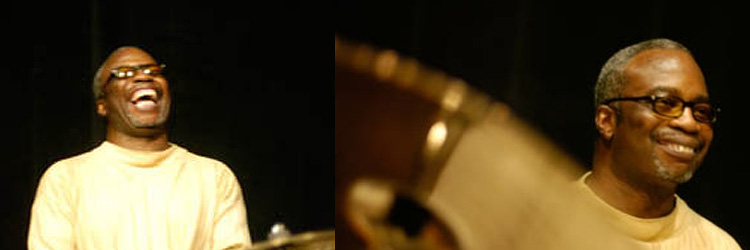
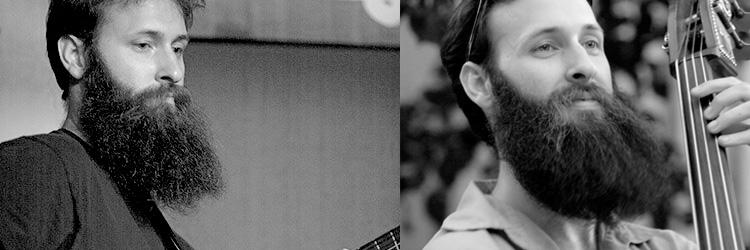
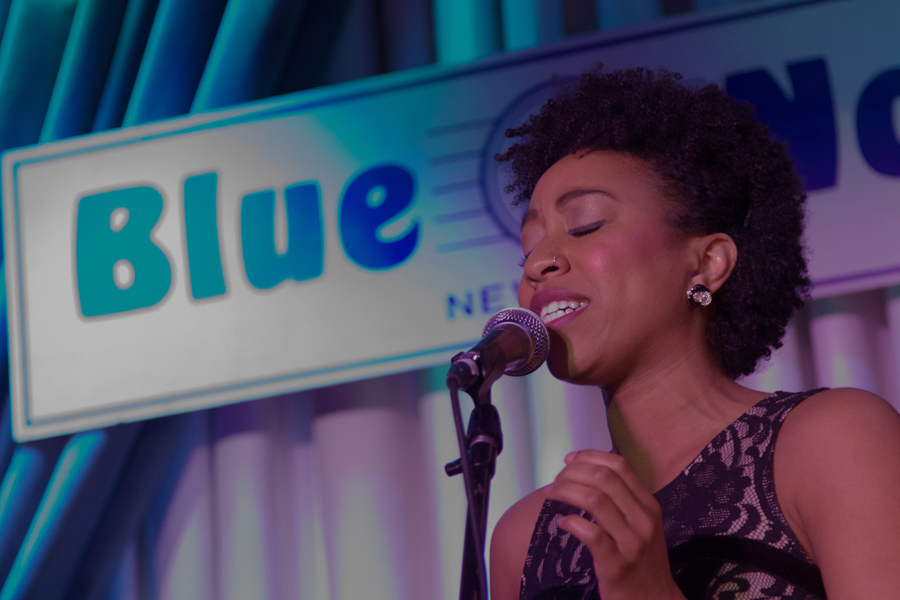
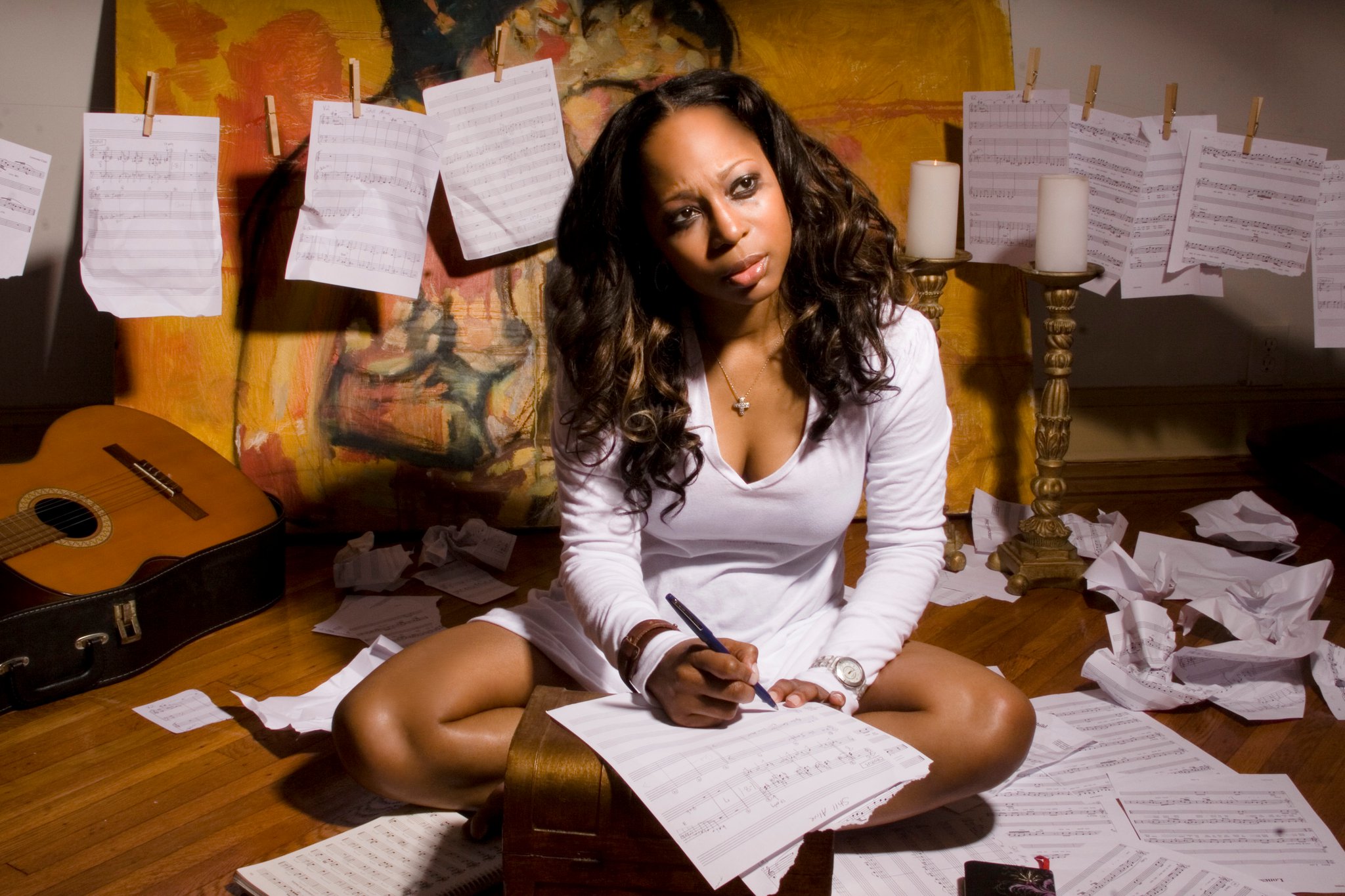
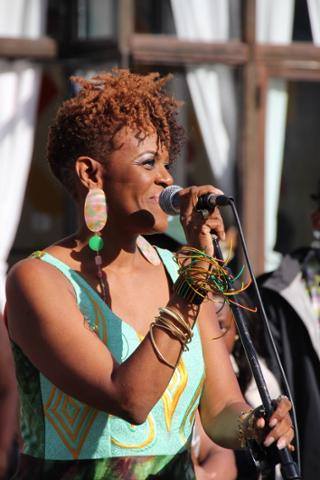
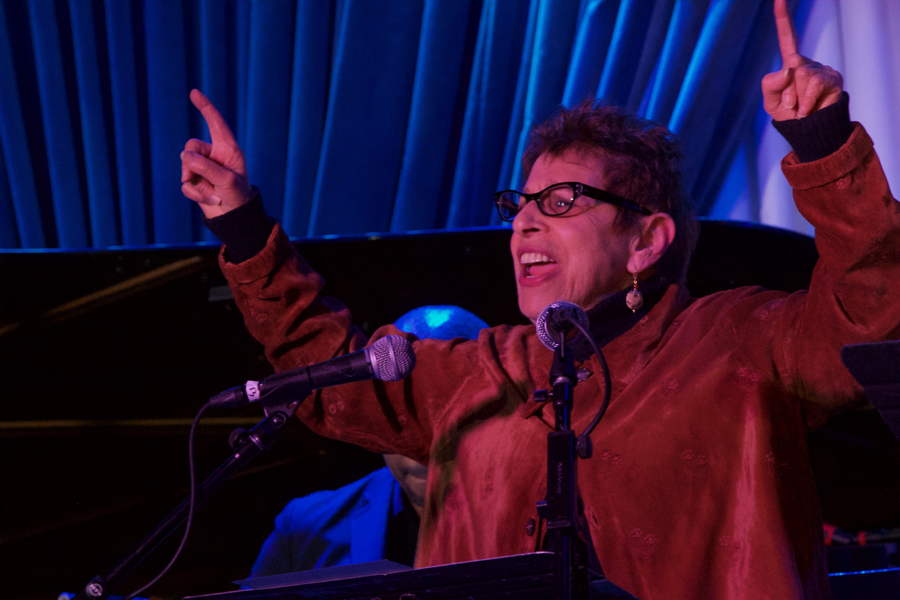
 Share On Facebook
Share On Facebook Tweet It
Tweet It

